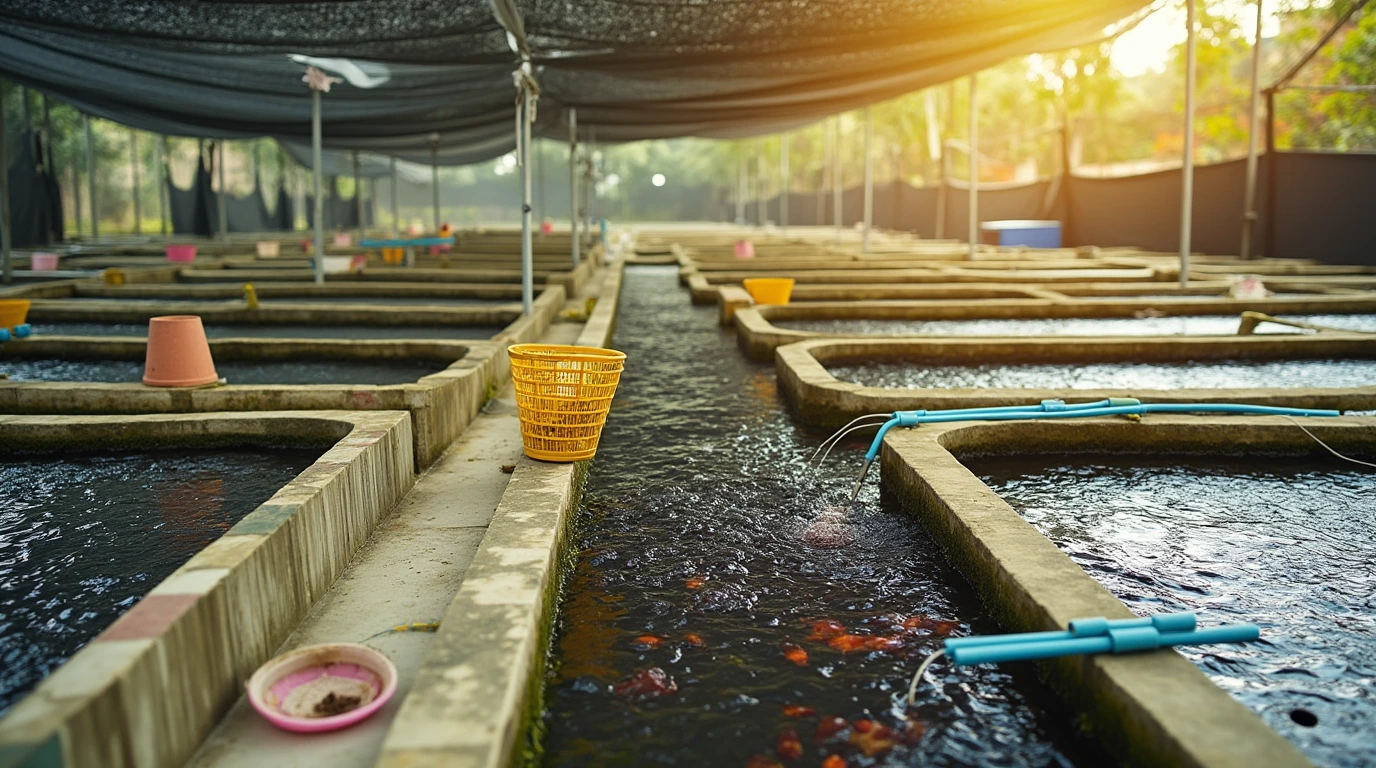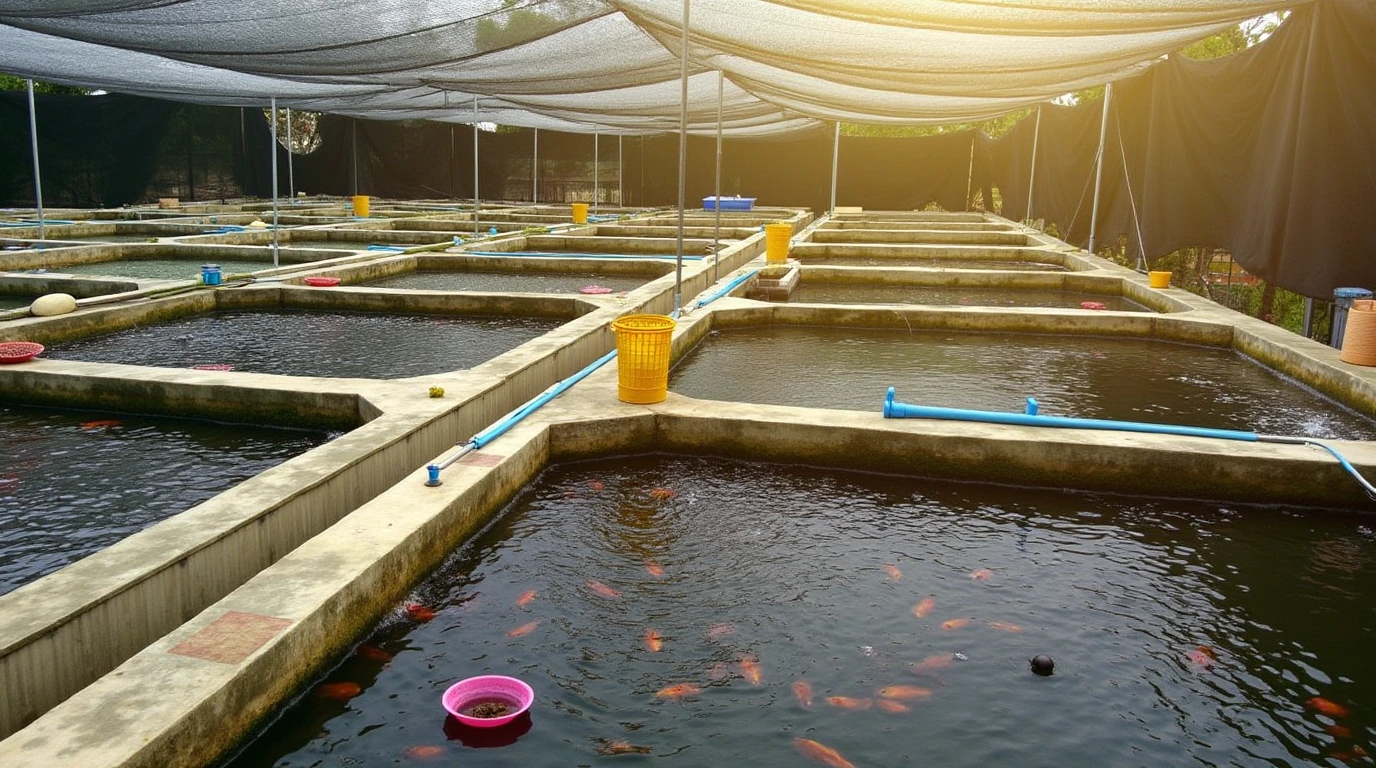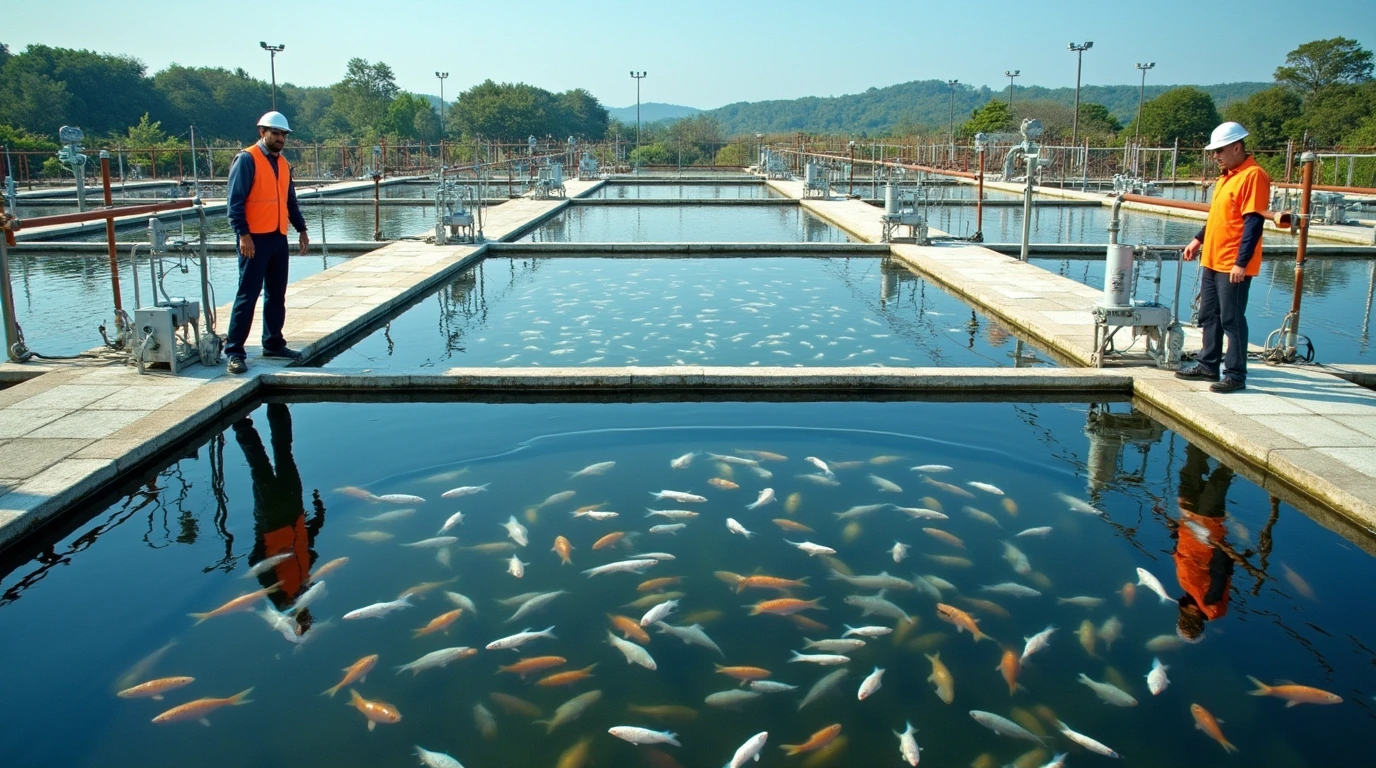Water is one of the most essential resources in both agriculture and aquaculture. The quality of water significantly influences the health and productivity of crops and aquatic species. In agriculture, water is vital for irrigation, while in aquaculture, it is necessary for maintaining a healthy environment for fish and other aquatic organisms. Effective water filtration systems are crucial to maintaining clean, safe water, reducing the risk of diseases, improving efficiency, and promoting sustainability in these sectors. This article explores various water filtration systems used in agriculture and aquaculture, highlighting their functions, benefits, and challenges.
Importance of Water Filtration in Agriculture and Aquaculture
Water quality impacts the success of agricultural and aquaculture practices. In agriculture, clean water is needed for irrigation to ensure that crops receive the necessary nutrients without exposure to harmful pathogens or contaminants. Polluted water can reduce crop yields, harm soil quality, and introduce harmful chemicals into the food chain.
In aquaculture, water filtration plays an even more crucial role. Fish and other aquatic organisms are highly sensitive to water quality, and poor water can lead to diseases, reduced growth rates, and even death. Maintaining high water quality is essential for the productivity and sustainability of aquaculture systems.
Water filtration systems remove unwanted particles, pathogens, and chemicals from water, ensuring it remains safe for both crops and aquatic organisms. These systems are not only beneficial for the environment but also help reduce the operational costs of both agricultural and aquaculture operations.

Types of Water Filtration Systems
Several types of filtration systems are used in agriculture and aquaculture. Each system has unique features and is designed to meet the specific needs of the operation. Some of the most common water filtration systems include mechanical filters, biological filters, chemical filters, and hybrid filtration systems.
Mechanical Filters
Mechanical filtration systems physically remove larger particles and debris from the water. These filters are commonly used in both agriculture and aquaculture to clear out suspended solids, including dirt, leaves, and other organic matter. Mechanical filtration is particularly useful in irrigation systems to ensure clean water is supplied to crops, preventing clogging of irrigation equipment and minimizing waterborne diseases.
In aquaculture, mechanical filters help remove fish waste, uneaten feed, and other particulate matter from the water. Drum filters, bead filters, and sand filters are examples of mechanical filters commonly used in aquaculture. These systems are typically easy to maintain and can operate continuously, which makes them ideal for large-scale operations.
Biological Filters
Biological filtration systems use natural biological processes to remove harmful substances, such as ammonia and nitrates, from the water. These filters rely on beneficial bacteria that break down waste products and convert toxic substances into less harmful compounds. Biological filtration is essential for maintaining a healthy environment for both crops and aquatic organisms.
In aquaculture, biological filters are critical for removing excess nitrogen compounds that result from fish waste and uneaten feed. Ammonia and nitrites are toxic to fish at high concentrations, and without a biological filtration system, the water quality can deteriorate rapidly. In agriculture, biological filtration can help improve the quality of irrigation water by breaking down organic matter and reducing the presence of harmful pathogens.
Chemical Filters
Chemical filtration systems use chemicals to remove impurities from the water. These systems are typically used in combination with mechanical and biological filters to provide comprehensive water treatment. Chemical filtration can remove substances such as chlorine, heavy metals, and pesticides, which can be harmful to both crops and aquatic organisms.
In agriculture, chemical filters are particularly useful for removing harmful chemicals from irrigation water. If water used for irrigation is contaminated with heavy metals or pesticides, it can negatively affect crop health and yield. In aquaculture, chemical filtration can help remove toxins and improve the overall water quality, ensuring the health of fish and other aquatic species.
Hybrid Filtration Systems
Hybrid filtration systems combine multiple filtration methods to achieve optimal water quality. These systems integrate mechanical, biological, and chemical filtration processes to address a wide range of contaminants. Hybrid systems are particularly useful in both agriculture and aquaculture, as they provide a comprehensive solution to water filtration challenges.
In aquaculture, hybrid systems are often used in recirculating aquaculture systems (RAS), where water is constantly reused. These systems typically combine mechanical filters for particle removal, biological filters for ammonia reduction, and chemical filters for removing dissolved toxins and pathogens. In agriculture, hybrid systems can improve the quality of irrigation water and reduce the risk of crop contamination.

Advantages of Effective Water Filtration Systems
The use of efficient water filtration systems offers several advantages for both agriculture and aquaculture operations.
Improved Water Quality
One of the most significant benefits of water filtration is the improvement in water quality. Clean water is essential for the health of both crops and aquatic organisms. Filtration systems help remove harmful substances such as pathogens, toxins, and excess nutrients, which can otherwise lead to disease outbreaks and reduced growth.
Enhanced Productivity
In agriculture, clean irrigation water leads to healthier crops, higher yields, and better quality produce. By preventing the buildup of harmful substances in the water, filtration systems ensure that crops receive the nutrients they need without the risk of contamination.
In aquaculture, clean water is essential for maintaining healthy fish stocks. Effective water filtration systems help optimize the growth and survival rates of aquatic organisms by maintaining optimal water conditions. As a result, fish farmers can achieve better productivity and profitability.
Reduced Disease Risks
Waterborne diseases are a significant threat in both agriculture and aquaculture. In agriculture, polluted water can spread harmful pathogens to crops, leading to reduced yields and quality. In aquaculture, poor water quality can promote the growth of harmful bacteria and viruses that can cause disease outbreaks among fish and other aquatic organisms.
By using filtration systems, both industries can reduce the risk of disease by removing harmful pathogens from the water. This not only improves the health of crops and aquatic species but also reduces the need for expensive treatments and interventions.
- Cost Savings
Although the initial cost of installing water filtration systems can be significant, the long-term savings they provide can outweigh the investment. For both agriculture and aquaculture, effective water filtration reduces the need for water treatment, minimizes the risk of disease outbreaks, and improves overall productivity, leading to cost savings and better profitability in the long run.
Challenges of Water Filtration Systems
While water filtration systems offer many benefits, there are also challenges associated with their implementation. Some of the common challenges include:
- Initial Costs: Installing high-quality filtration systems can be costly, particularly for large-scale operations.
- Maintenance Requirements: Regular maintenance and cleaning are necessary to keep filtration systems functioning efficiently. Failure to maintain the systems properly can result in reduced performance and increased costs.
- Energy Consumption: Some filtration systems, particularly those used in aquaculture, can be energy-intensive, leading to higher operational costs.
- Complexity: Hybrid filtration systems, while effective, can be complex to install and operate, requiring specialized knowledge and training.
Conclusion
Water filtration is an essential component of both agriculture and aquaculture. The different filtration systems—mechanical, biological, chemical, and hybrid—offer a variety of solutions to improve water quality, reduce disease risks, enhance productivity, and provide long-term cost savings. By implementing the appropriate water filtration system, agricultural and aquaculture operations can achieve sustainability, improve efficiency, and ensure the health of crops and aquatic organisms. As the demand for food and seafood continues to rise, the role of effective water filtration in these industries will become even more critical to maintaining a balance between productivity and environmental sustainability.

